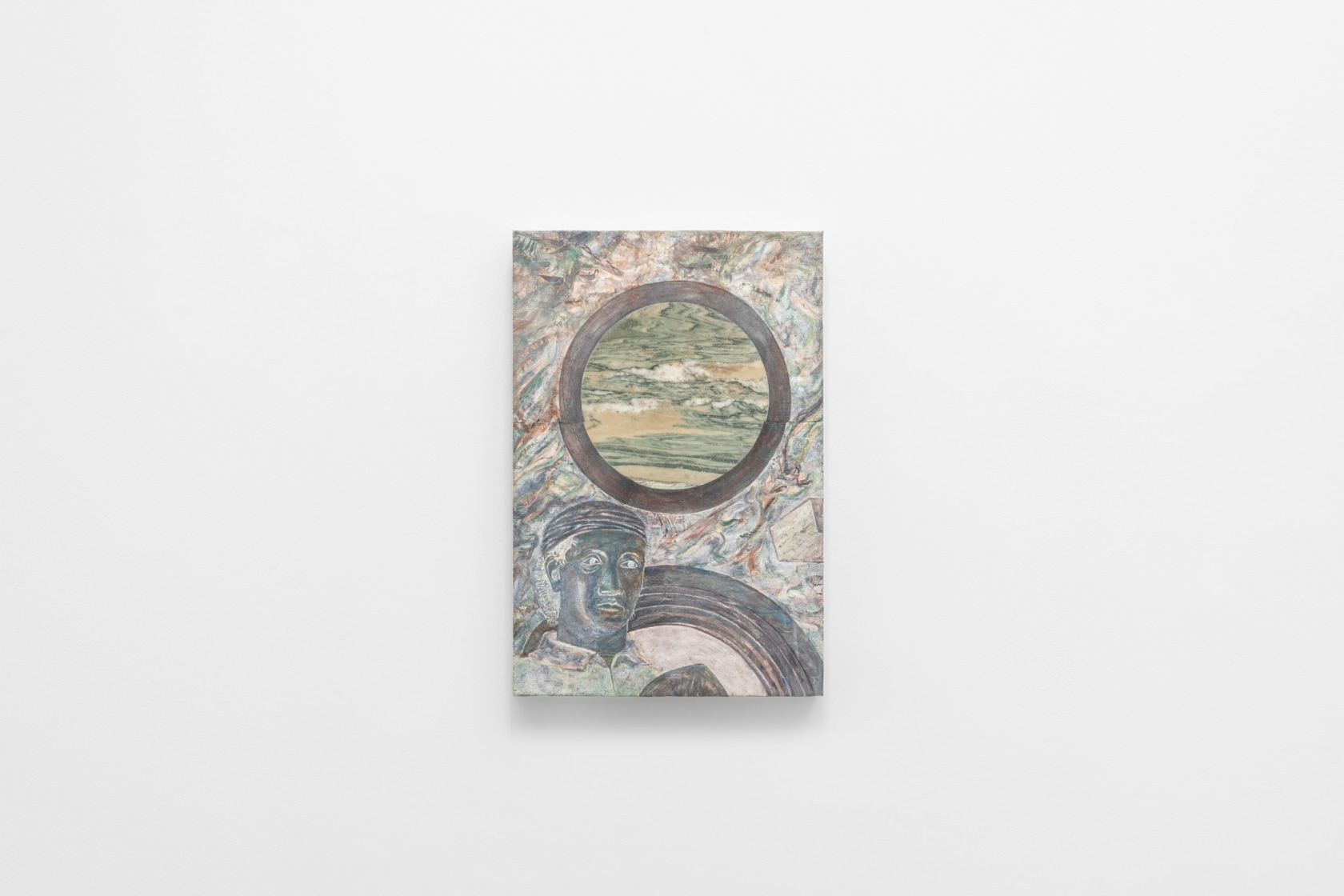Anri Sala Legenda Aurea Inversa (VII, fragment 1), 2023
Produced by Anri Sala in Italy, the fresco is painted on specially prepared panels using the ancient technique of painting with pigment dissolved in water onto wet plaster. Set into the wet plaster are also pieces of marble that are integrated into the composition, similar to intarsia, flush with the surface of the plaster. The work is hung on the wall.
With the Legenda Aurea Inversa series of works, Sala cites a momentous work in the history of art: Piero della Francesca's extensive fresco cycle of the Legend of the Holy Cross, which was executed around the middle of the 15th century and is located in the Basilica of San Francesco in Arezzo. Although Sala takes this art-historically significant fresco as his starting point, he picks out individual sections, which he focuses on and significantly modifies as if using the viewfinder of a camera.
By using a detail from della Francesca's work, Sala makes clear the link to the history of the medium. Yet, he inverts the colors and brings into play another, more recent but perhaps soon equally anachronistic medium: the effect is known from analog photography when the colors of a negative are reversed. As the artist noted: “I create the negative of the image that would have been made if Piero della Francesca's fresco had been a color photograph.” Sala however used a digital tool to modify the image, adding another temporal layer: timeless materials, anachronistic media and contemporary aesthetics are interwoven.
